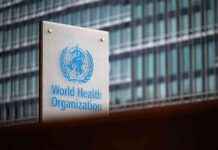The World Health Organization and the Coalition for Epidemic Preparedness Innovations (CEPI) have come together to urge researchers and governments to prepare for future pandemics. This call to action comes in light of the devastating impact of the Covid-19 pandemic, which claimed the lives of about seven million people worldwide.
Dr. Tedros Ghebreyesus, the director general of WHO, emphasized the importance of scientific research and political commitment in mitigating the effects of future pandemics. He highlighted the inevitability of another global health crisis and stressed the need for a proactive approach in addressing potential threats.
At the Global Pandemic Preparedness Summit 2024 in Rio de Janeiro, Brazil, the WHO R&D Blueprint for Epidemics issued a report outlining a comprehensive strategy for pandemic preparedness. This approach focuses on advancing our understanding of various pathogens, enhancing surveillance capabilities, and developing rapid response tools and countermeasures.
The report emphasized the need for a global effort to study pathogens that have not received adequate attention. Many regions of the world, particularly those with limited resources and high biodiversity, remain under-monitored and understudied. These areas could potentially harbor novel pathogens that pose a threat to global health security.
Dr. Richard Hatchett, CEO of CEPI, expressed support for WHO’s scientific framework for epidemic and pandemic research preparedness. He highlighted the importance of prioritizing research into entire pathogen families to enhance our ability to respond to emerging threats, zoonotic spillover events, and unknown pathogens, often referred to as pathogen X.
To facilitate globally coordinated research efforts, WHO is working to establish Collaborative Open Research Consortiums (CORCs) for each pathogen family. These consortiums will bring together researchers, developers, funders, regulators, and other stakeholders to promote collaboration and equitable participation in research activities.
The prioritization work involved in developing the report included input from over 200 scientists from more than 50 countries. These experts evaluated the epidemic and pandemic risk of 28 virus families and one core group of bacteria, encompassing a total of 1,652 pathogens. By considering factors such as transmission patterns, virulence, and the availability of diagnostic tools and treatments, the researchers were able to assess the potential threat posed by each pathogen.
In conclusion, the collaboration between WHO and CEPI underscores the importance of proactive preparedness in the face of future pandemics. By investing in research, surveillance, and rapid response capabilities, countries can better protect the health and well-being of their populations against emerging infectious diseases. It is essential for the global community to work together to address potential threats and ensure a coordinated response to future health crises.









